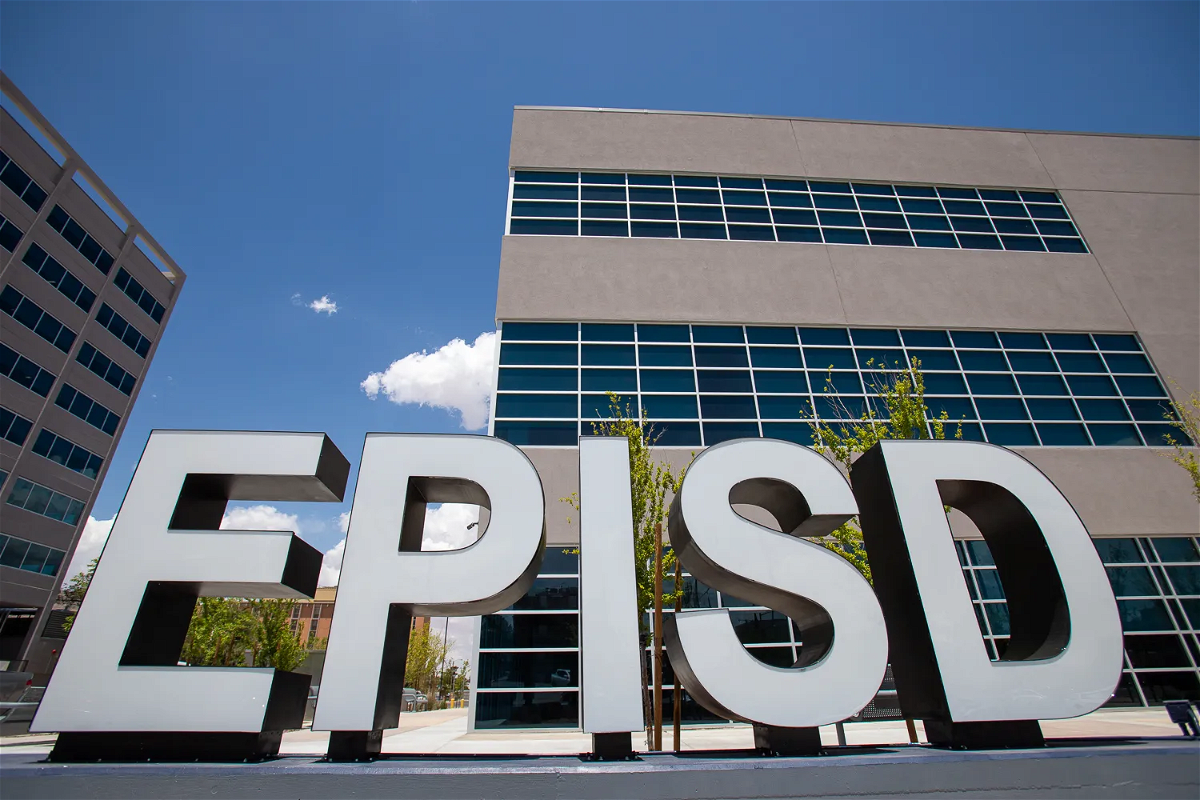EPISD pay plan could mean $29 million budget deficit down the road

The El Paso Independent School District board is expected to vote on increasing teachers’ salaries by 5% -- a pay boost that comes with dire possibilities, namely a projected $29 million budget deficit and no employee raises for the next two years.
The board is set to consider adopting the 2022-23 school year operating budget on June 23. The meeting was pushed back two weeks to give trustees more time to digest the financial ramifications and hear how the district plans to increase revenues to offset projected deficits.
Under the proposed tiered compensation plan, teachers, librarians, nurses, counselors and hourly staff would get a 5% raise; campus administrators and professional staff would see a 4%; and Central Office leadership would receive a 3%. The raises would be from the midpoint, which is the middle point of their pay grade salary range.
Starting teacher salaries would increase to $56,550, up from the current starting pay of $53,125.
All employees would additionally receive a $1,000 stipend, as well as a second stipend equivalent to 4% of their salary (or 1% for employees at the director level or above). These one-time stipends would be paid for with federal coronavirus relief money.
The proposed 5% raise would be the largest pay increase EPISD teachers have seen since 2019, when the Texas Legislature funneled more money into districts to boost educators’ salaries. But it would still put EPISD behind neighboring districts, which it has long trailed when it comes to pay, and with which it competes for teachers.
The Socorro and Ysleta independent school district boards are set to consider 5% midpoint and 2.5% midpoint salary increases, respectively, next week. The Canutillo Independent School District raised employee pay by 3% last month.
Reducing expenses, increasing revenue ‘doable’
EPISD’s financial challenges stem from decreased state revenue as a result of declining enrollment. Texas largely funds districts based on the average daily number of students in attendance.
EPISD has lost more than 12,000 students over the past decade, which has cost the district about $100 million in state revenue, according to information Chief Financial Officer Martha Aguirre shared with trustees at an April 5 budget workshop. For the 2022-23 school year, EPISD anticipates enrolling 1,900 fewer students -- a loss of about $8 million in state funds.
As a result, EPISD must “rightsize our budget to our district’s revenue” by reducing expenses, Aguirre told trustees at the June 13 budget workshop.
If no changes are made, and enrollment continues to fall, EPISD projects a nearly $4 million budget deficit in the 2023-24 school year and a $29 million deficit for 2024-25. Both of those financial assumptions are based on not raising employee salaries during that time period.
Superintendent Diana Sayavedra, who is going through her first budget cycle at EPISD, told trustees that reducing expenditures and increasing revenue to close these deficits is “absolutely doable” through a range of measures, including:
- Selling surplus properties, which includes closed schools. The district has 33 surplus properties and aims to sell four by May 2023, which could bring in an estimated $10 million.
- Not hiring unfilled Central Office positions.
- Raising the average daily attendance rate.
- Improving student reporting for federal aid programs.
- Redesigning dual language programming to adjust staffing and classroom size.
“Our district has been somewhat complacent in terms of any revenue-generating systems that are going to be to children’s benefit, specifically average daily attendance,” Sayavedra said.
Increasing average daily attendance from its longtime rate of 90% to 94%, she said, would generate $14 million annually in state funds.
“That’s halfway to the deficit and it’s something that we should be doing because it’s the number one predictor for student success,” Sayavedra said.

Sayavedra also said she has assembled a team to devise a strategy for stabilizing enrollment, noting she anticipates “recapturing” at least 500 students who left the district.
School boards must adopt a balanced budget before the start of the new fiscal year, which for EPISD begins July 1. The proposed $528 million budget trustees are set to adopt June 23 requires dipping into its general fund, or savings account, to cover $4.1 million in expenses.
Unions want salaries equal to other districts
The leaders of EPISD’s two employee unions had urged the administration to devise a compensation plan with higher salary increases. The El Paso chapter of the American Federation of Teachers had pressed for as high as nearly 12% while the El Paso Teachers Association called for 7%.
Though not completely satisfied with the recommended 5% raise for teachers, El Paso AFT President Ross Moore said he was pleased to see Sayavedra’s openness and transparency when discussing the district’s finances.
“If they can pull off the savings and the efficiencies and streamline things and not leave money on the table, that’s a fundamental change in the way EPISD is doing business,” Moore said.
Moore believes EPISD can “pull this off,” and potentially catch up to other area districts’ compensation rates, as long as Sayavedra has support from the board, Central Office administrators and employees.
“I think they will do what they have to do, because competition (for teachers) is very strong,” said EPTA President Norma De La Rosa of whether the district can generate additional revenue needed for annual employee raises.
If the district has to dip into its general fund to support higher raises, it should, she said, noting that EPISD has more than the minimum 60 days worth of operating expenses in its fund.
Aguirre, in a Thursday interview with El Paso Matters, emphasized that EPISD anticipates it will be able to close the projected deficits and offer a new employee compensation package for the 2023-24 year and beyond.
“With our superintendent’s leadership and vision, I think that as an administration we have committed to place our human capital as a priority in regards to compensation,” she said.
This article first appeared on El Paso Matters and is republished here under a Creative Commons license.![]()
